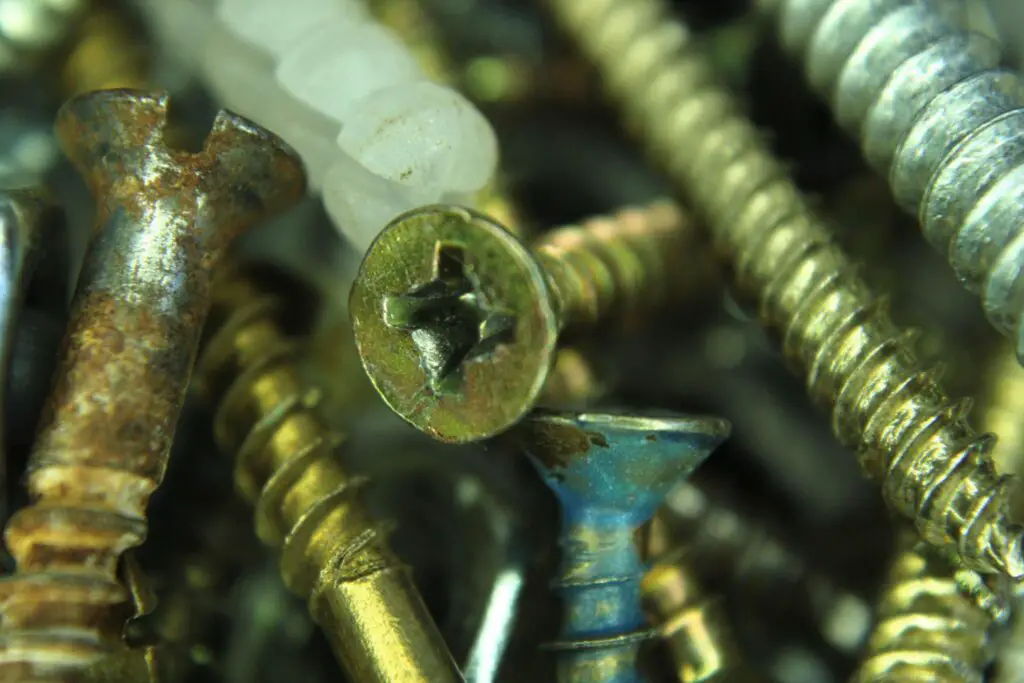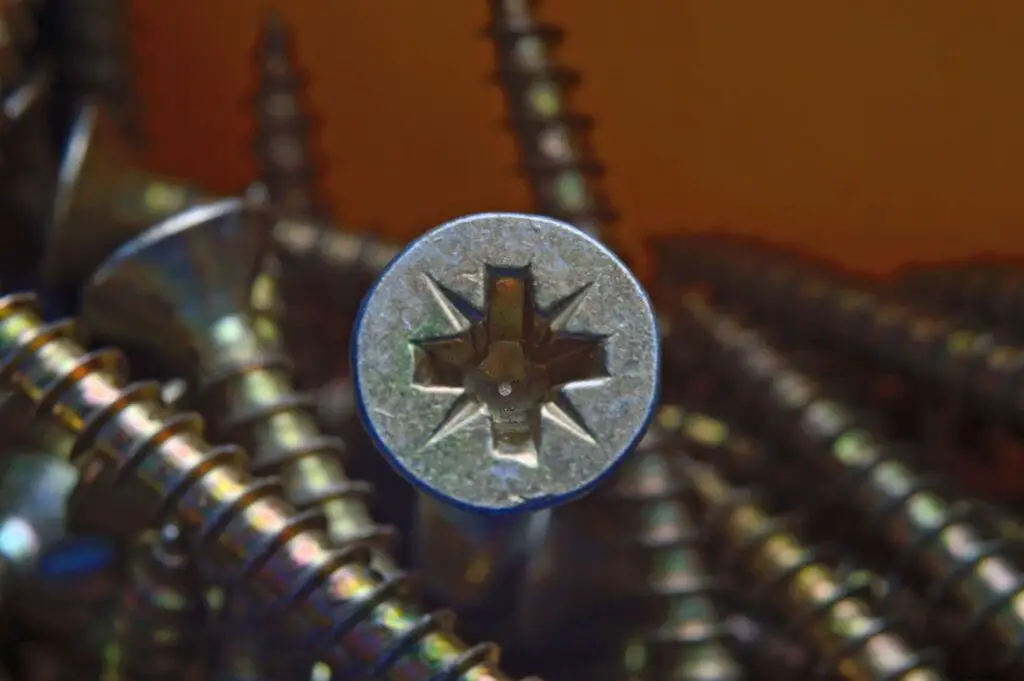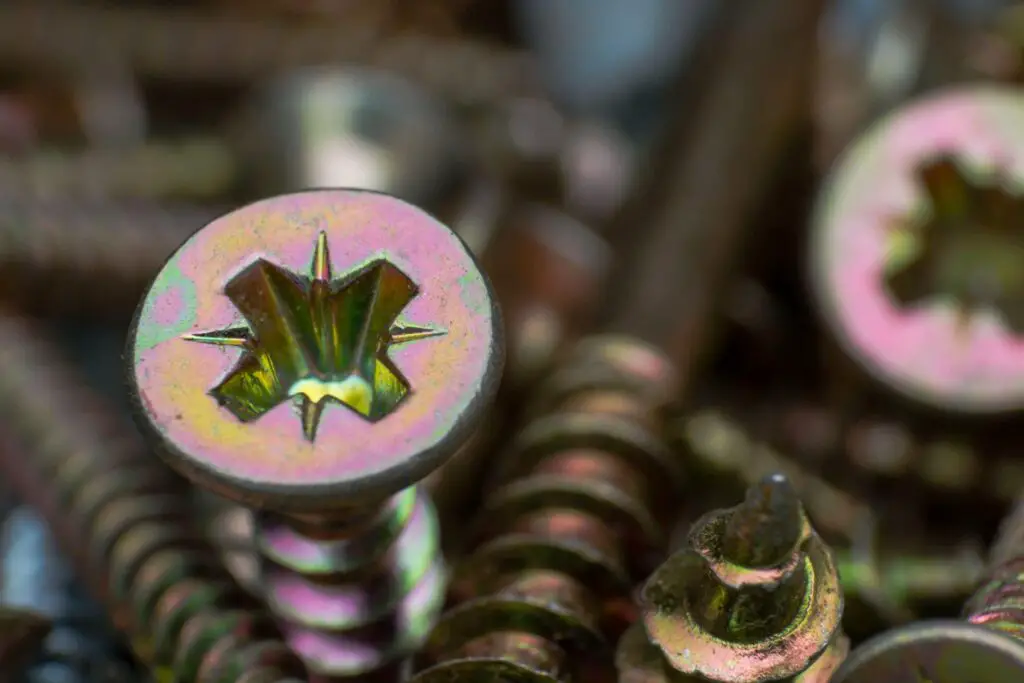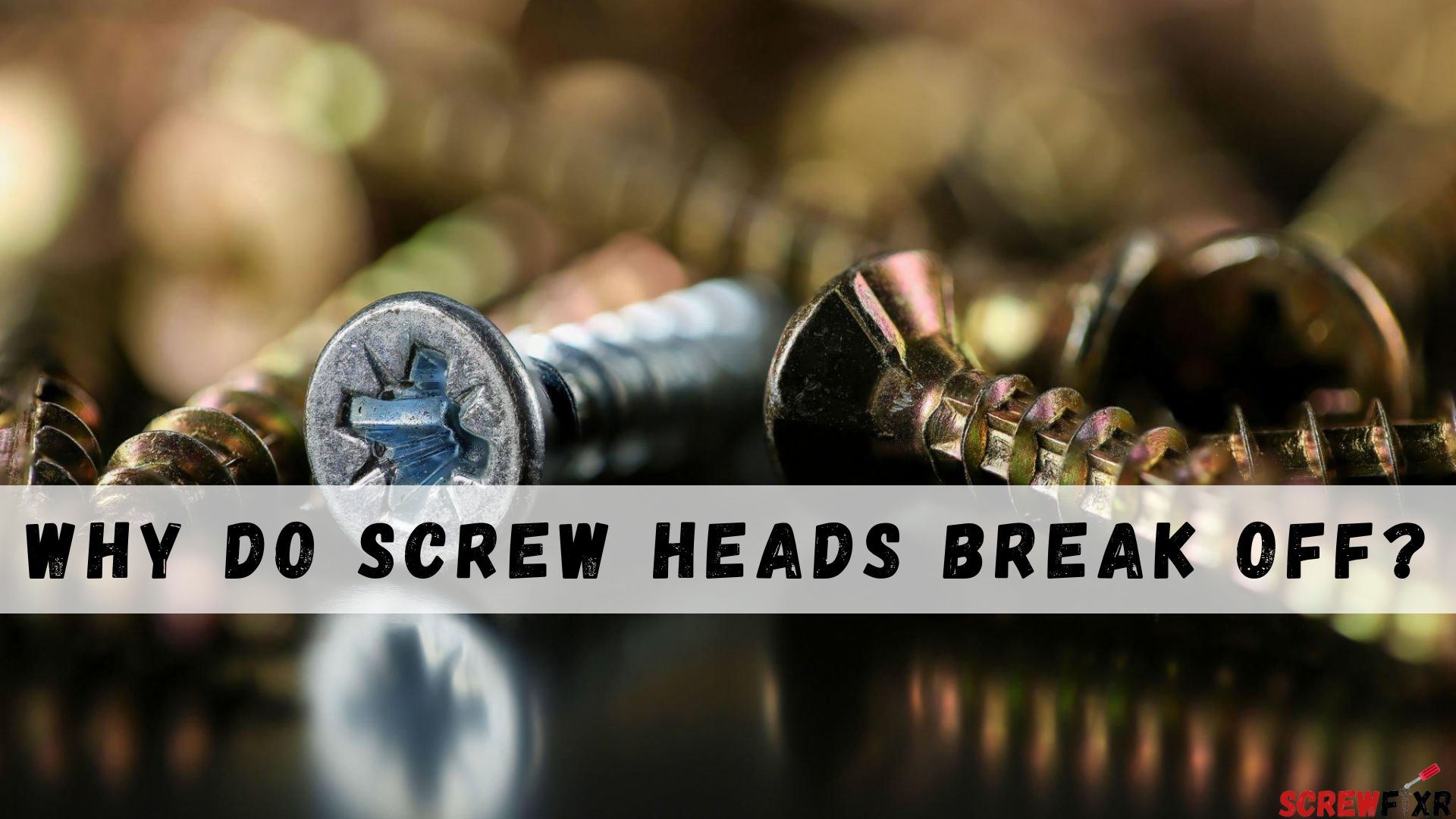Have you ever had a screw head break off when you were trying to tighten it? Screw heads breaking off can be a frustrating and potentially costly issue for any DIY or professional project. Understanding the causes of screw head breakage can help prevent it from happening in the future and ensure a successful project outcome. Here, we will explore possible reasons why do screw heads break off and provide tips on how to avoid them.
Why Do Screw Heads Break Off – The Causes

It’s important to keep in mind that the cause of screw head breakage can be a combination of these factors. By understanding the causes, you can take the necessary steps to prevent them from happening in the future.
- Improper Installation: One of the main causes of this is improper installation. This can occur when the screw is not inserted at the correct angle or if the drill or driver is not held at the proper level. Also, if the drill or driver is not set to the correct torque, this can also lead to improper installation and ultimately, screw head break.
- Over-tightening: Another common cause of broken screw heads is over-tightening. This occurs when the screw is tightened to an excessive degree, causing the head to snap off or the threads to strip. This can happen when the user applies too much pressure when tightening the screw or if the drill or driver is set to excessive torque.
- Using the wrong type of screw: Different types of screws are designed for specific materials and applications. Using the wrong type of screw for the material being used can lead to screw head breakage. For example, using a wood screw on metal or using a self-tapping screw on a soft material can cause the screw head to break.
- Corrosion: Corrosion can also play a role in screw head breakage. When screws are exposed to harsh environments or chemicals, the metal can corrode and weaken, making the screw head more prone to breaking.
- Material Weakness: Some materials like brittle plastic or low-density wood, are naturally weak and are likely to crack or break under pressure. If the screw is not properly inserted or tightened, the material can crack and cause the screw head to break off.
How to Prevent Screw Head Breakage – Best Solutions

We will explore different methods to prevent screw head breakage. These include:
- Proper Installation Techniques: To prevent screw head breakage, it is important to ensure that the screw is inserted at the correct angle and that the drill or driver is held at the proper level. Also, the drill or driver should be set to the correct torque to ensure proper installation.
- Using the right type of screw for the material: Using the right type of screw for the material being used is crucial in preventing screw head breakage.
- Proper tightening methods: To prevent screw head breakage, it is important to use the proper tightening methods. This includes not over-tightening the screw and using a torque wrench to ensure the screw is tightened to the correct degree.
- Regular maintenance and cleaning: Regular cleaning and maintenance of screws can prevent screw head breakage. This includes removing dirt, debris, and corrosion, which can weaken the screw and make it more prone to breaking.
- Using anti-corrosion measures: To prevent corrosion, it is important to use anti-corrosion measures. This can include using stainless steel screws or applying a rust inhibitor to the screws.
By following these steps and being mindful of the potential causes of screw head breakage, you can prevent it from happening and ensure a successful project outcome.
FAQ About Why Do Screw Heads Break Off

How do you stop a screw from snapping?
To stop a screw from snapping, ensure that the screw is inserted at the correct angle and that the drill or driver is held at the proper level. The drill or driver should be set to the correct torque to ensure proper installation. Avoid over-tightening the screw, and use the correct type of screw for the material being used.
Why do my Phillips bits keep breaking?
Phillips bits can break for a variety of reasons, including using the wrong size bit for the screw, using a worn-out bit, or applying too much pressure when turning the screw. To prevent Phillips bits from breaking, ensure that you are using the correct size bit for the screw, regularly replace worn-out bits, and use a light touch when turning the screw.
How do you remove a screw with a broken head?
To remove a screw with a broken head, you can use a pair of pliers to grip the head and turn it counterclockwise. Another option is to use a screw extractor, which is a tool specifically designed to remove broken screws. Another method is to drill a hole in the center of the screw head, and then use a screwdriver to remove the screw.
Why do screws break but nails don’t?
Screws are designed to be inserted and tightened into a material, which can lead to breakage if it is not properly inserted or tightened. Nails, on the other hand, are typically driven into a material, which reduces the likelihood of breakage. Screws are made of metal and can be affected by corrosion, while nails are typically made of steel or aluminum, which are less prone to rusting and corrosion.
Bottom line
So, it is clear why screw heads break off. Screw head breakage is a common problem that can occur for a variety of reasons. But understanding the causes of screw head breakage can help prevent it from happening in the future and ensure a successful project outcome. This discussion already provided a comprehensive guide on the causes and prevention of screw head breakage, and we hope it will help you in your upcoming projects.
Relevant Resources:


